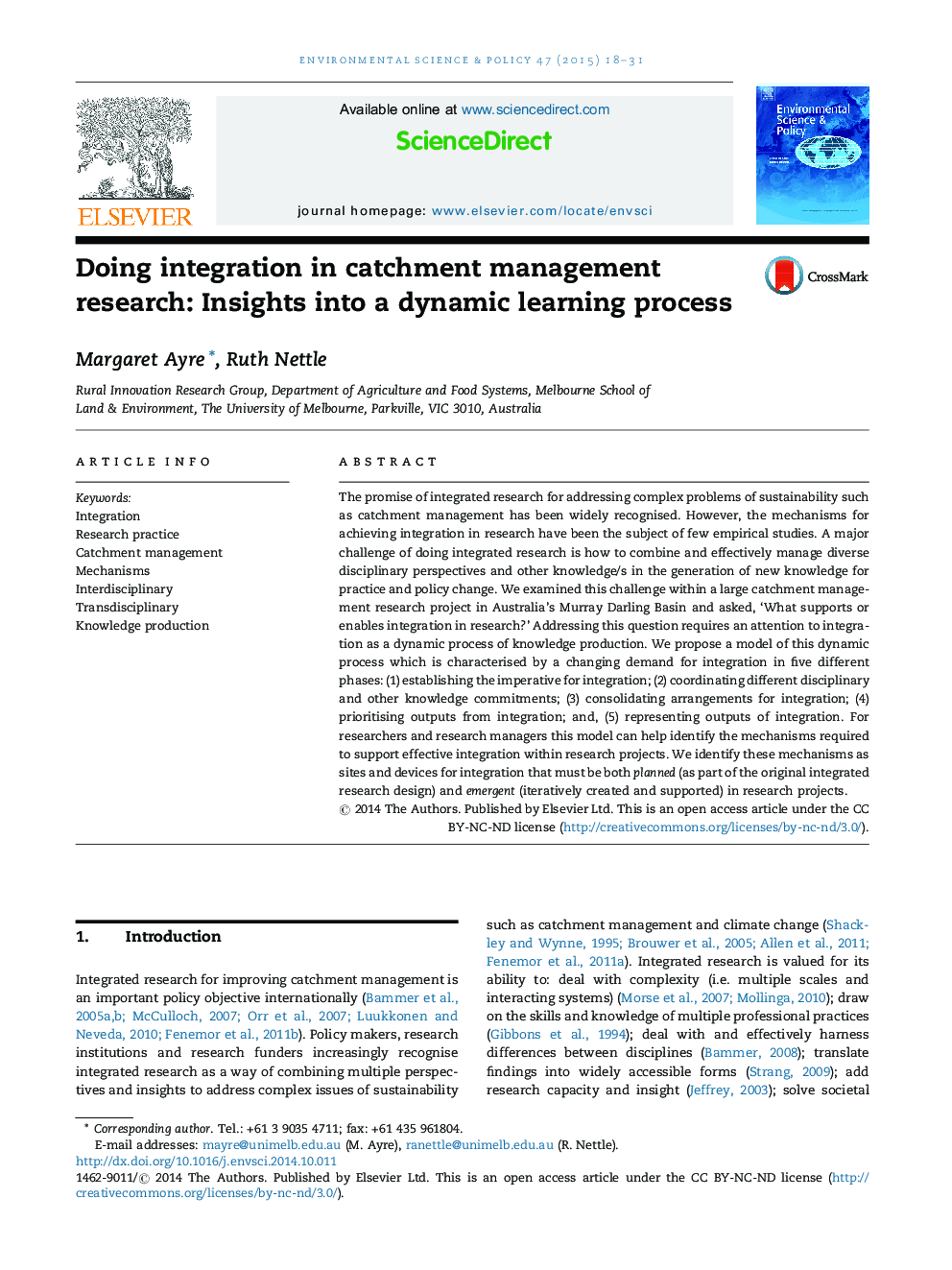| Article ID | Journal | Published Year | Pages | File Type |
|---|---|---|---|---|
| 7467525 | Environmental Science & Policy | 2015 | 14 Pages |
Abstract
The promise of integrated research for addressing complex problems of sustainability such as catchment management has been widely recognised. However, the mechanisms for achieving integration in research have been the subject of few empirical studies. A major challenge of doing integrated research is how to combine and effectively manage diverse disciplinary perspectives and other knowledge/s in the generation of new knowledge for practice and policy change. We examined this challenge within a large catchment management research project in Australia's Murray Darling Basin and asked, 'What supports or enables integration in research?' Addressing this question requires an attention to integration as a dynamic process of knowledge production. We propose a model of this dynamic process which is characterised by a changing demand for integration in five different phases: (1) establishing the imperative for integration; (2) coordinating different disciplinary and other knowledge commitments; (3) consolidating arrangements for integration; (4) prioritising outputs from integration; and, (5) representing outputs of integration. For researchers and research managers this model can help identify the mechanisms required to support effective integration within research projects. We identify these mechanisms as sites and devices for integration that must be both planned (as part of the original integrated research design) and emergent (iteratively created and supported) in research projects.
Keywords
Related Topics
Physical Sciences and Engineering
Energy
Renewable Energy, Sustainability and the Environment
Authors
Margaret Ayre, Ruth Nettle,
